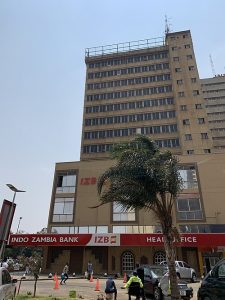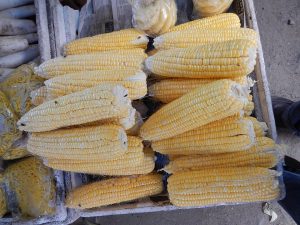Please log-in to report.
Africa, South America, North America, Europe, Asia, Oceania
Sign-up / Log-in to be up-to-date and informed!
Choose your News Preferences Below
Top News Stories Worldwide
Your Current Default Preferences are:
Zambia Top Stories
Top Stories
for the 20 Oct - 26 Oct
< Previous week Next week >

The Bank of Zambia’s latest treasury bill auction recorded an undersubscription, attracting bids worth K1.04 billion against a K2.2 billion target. Only K928.75 million was accepted, indicating weak investor demand amid tighter monetary conditions. The 364-day tenor received the highest bids at K525.91 million. Interbank trading volumes declined, though market liquidity rose to K2.13 billion. Meanwhile, copper prices rose slightly, supported by stronger industrial output in China despite slower overall economic growth.

The International Monetary Fund’s latest outlook shows Zambia’s economy stabilizing following reforms under its Extended Credit Facility program. Inflation declined from 24% in 2021 to 12.3% in October 2025, with further drops expected in 2026. GDP growth is projected at around 6%, driven by mining, agriculture, and energy. Finance Minister Situmbeko Musokotwane said the government will focus on converting economic stability into inclusive growth, job creation, and investment.

Zambia Railways Limited has disbursed over K38 million in terminal benefits to 104 former employees between 2023 and 2025. The payments include retirement benefits for 77 retirees, gratuities for 22 contract staff, and death benefits for five employees. Managing Director Cuthbert Malindi credited the government and Industrial Development Corporation for their support and said the company aims to prevent future delays in employee entitlements through improved management and planning systems.

Zambia and Malawi agreed to finalize a maize export deal involving 200,000 metric tons, following a bilateral understanding between their presidents. Finance Ministers Situmbeko Musokotwane and Joseph Mwanamveka met during the IMF and World Bank meetings to expedite arrangements. Musokotwane highlighted Zambia’s recent drought response, supported by a $200 million World Bank grant. Both countries will hold an emergency meeting in Chipata to complete logistical, contractual, and policy frameworks for the exports.

The Zambian government enacted key mining reforms to boost local participation and support artisanal miners. The 2026 budget raised the turnover tax threshold for small-scale miners from K800,000 to K5 million, aiming to simplify compliance and encourage formalization. Meanwhile, a new Local Content Law requires mining firms to prioritize Zambian goods and services. Policy groups have urged enhanced monitoring, stakeholder engagement, and digital systems to ensure effective implementation and prevent revenue losses.

Zimbabwe and Zambia agreed to reduce reliance on the Kariba Dam and the Zambezi River for electricity, citing drought-related declines in hydropower output. Energy Ministers July Moyo and Makozo Chikote committed to developing alternative energy sources and strengthening regional cooperation. The plan includes exploring fossil fuel and gas options to support key sectors like mining and agriculture. Both countries aim to increase energy security and adapt to long-term climate challenges.

